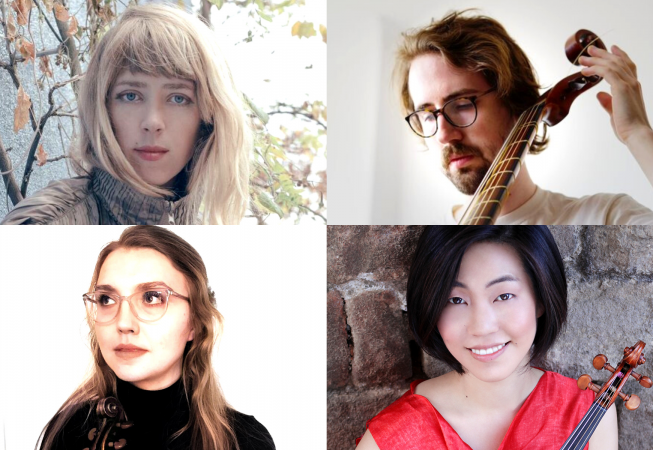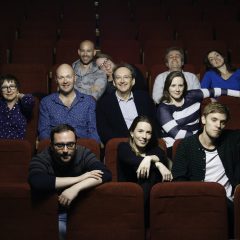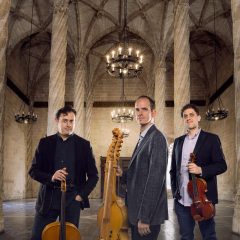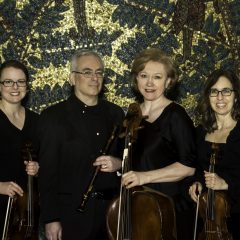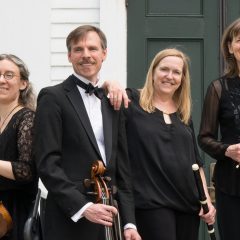Paris at Dawn: Revolutionary Quartets
Bloomfield Hills
Friday, November 4, 8 PM
TICKETS ON SALE OCT 4
Ann Arbor (Zion Lutheran Church)
Saturday, November 5, 8 PM
TICKETS ON SALE OCT 4
The multi-talented Joseph Bologne performed different musical roles in Paris as a conductor, violin virtuoso, and composer. In his rarely heard String Quartet in G minor, Op. 14 No. 6, melodies colored with early romanticism pass between the two violins. Born in Versailles, the Jadin brothers led active musical lives in Paris. The colors of Hyacinthe Jadin’s Op. 1 String Quartets anticipate the musical style and harmonic evolution of Franz Schubert. String Quartet in F Minor, Op. 2 by Louis-Emmanuel Jadin, the older of the two brothers, represents the French interpretation of Sturm und drang and mixes 18th century form with the drama of pre-romantic sensibilities.
Highlights of the past season include performances of The Seven Last Words Project— an immersive multimedia journey through Haydn’s Seven Last Words of Christ as reflected upon by seven diverse contemporary composers— at Five Boroughs Music Festival; the quartet’s debut at Music Mountain Summer Festival as the first period instrument ensemble to perform in the concert series 92 year history, and a residency at Festival de Música de Santa Catarina in Jaraguá do Sul, Brazil. This past spring, the Cramer Quartet launched Haydn: Dialogues, an ambitious multi-year cycle combining Haydn’s 68 string quartets with sixteen new commissions by composers of marginalized identities. Recent appearances include Boston’s Society for Historically Informed Performance and Museum of Fine Arts, Boston’s “Art in Tune” event— a multidisciplinary site-specific collaboration in which the CQ paired artwork from the museum’s galleries with a series of rarely heard works performed on a set of 18th-Century musical instruments from the MFA’s collection.
The Cramer Quartet is the recipient of a Lower Manhattan Cultural Council Creative Engagement Grant, Chamber Music America’s Ensemble Forward Grant, and is generously supported by the Copland Foundation, and New York Council of the Arts. The ensemble takes its name from Wilhelm Cramer, a brilliant violinist who enjoyed a multifaceted career as London’s first major string quartet leader. Cramer is credited with popularizing a late 18th century violin bow which became the inspiration for the style of historical bows used by the Cramer Quartet.
Hyacinthe Jadin (1776-1800)
String Quartet Op. 1, No. 1: II. Adagio
https://www.youtube.com/watch?v=Yl8Z88QuZpw&t=1146s
Joseph Bologne Chevalier de Saint-Georges (1745-1799)
String Quartet in G minor, Op. 14 No. 6: I. Untitled
https://www.youtube.com/watch?v=Yl8Z88QuZpw&t=2511s
Joseph Bologne Chevalier de Saint-Georges (1745-1799)
String Quartet in G minor, Op. 14 No. 6: I. Untitled
Hyacinthe Jadin (1776-1800)
String Quartet in B flat Major Op. 1, No. 1: I. Allegro non troppo

